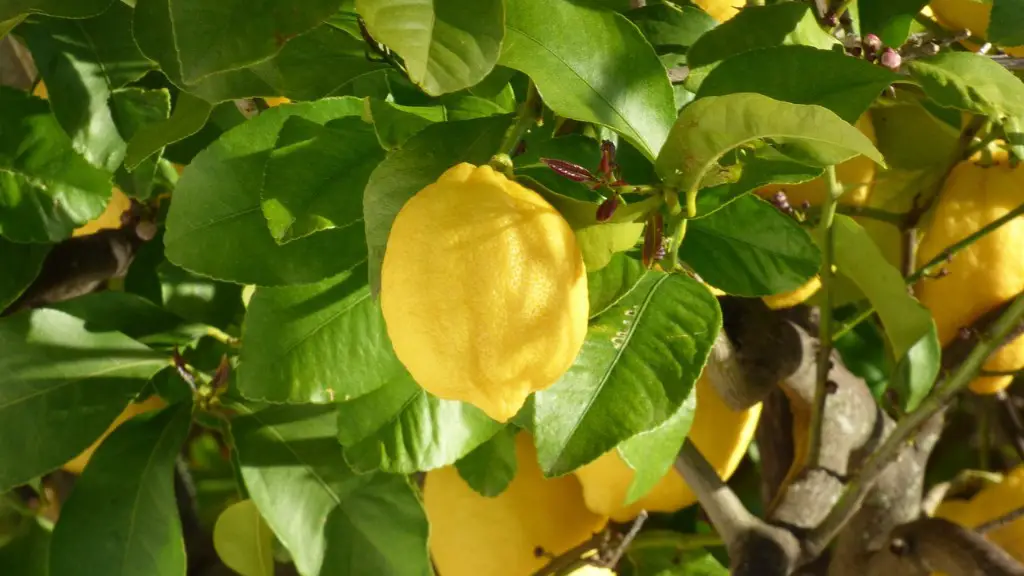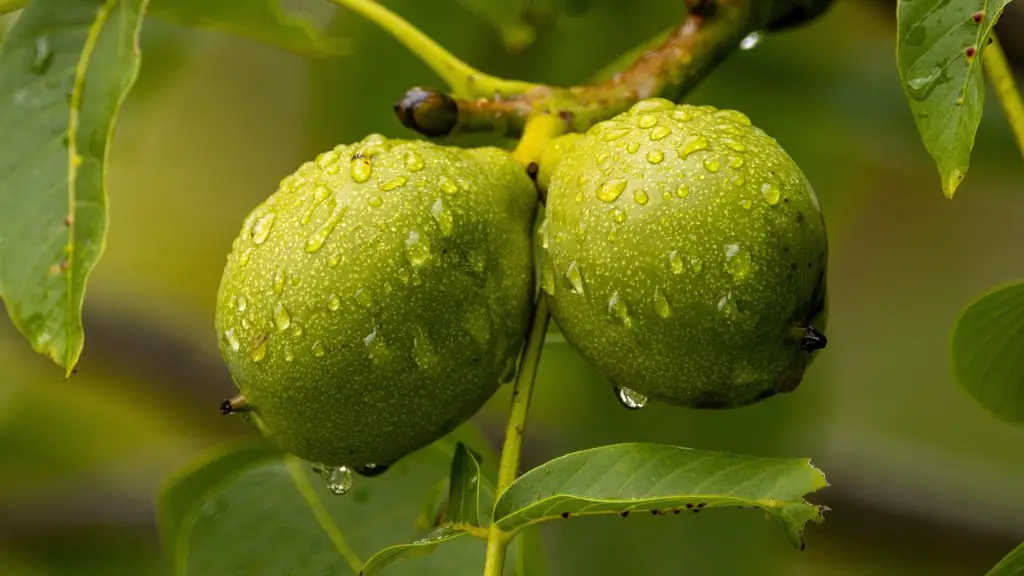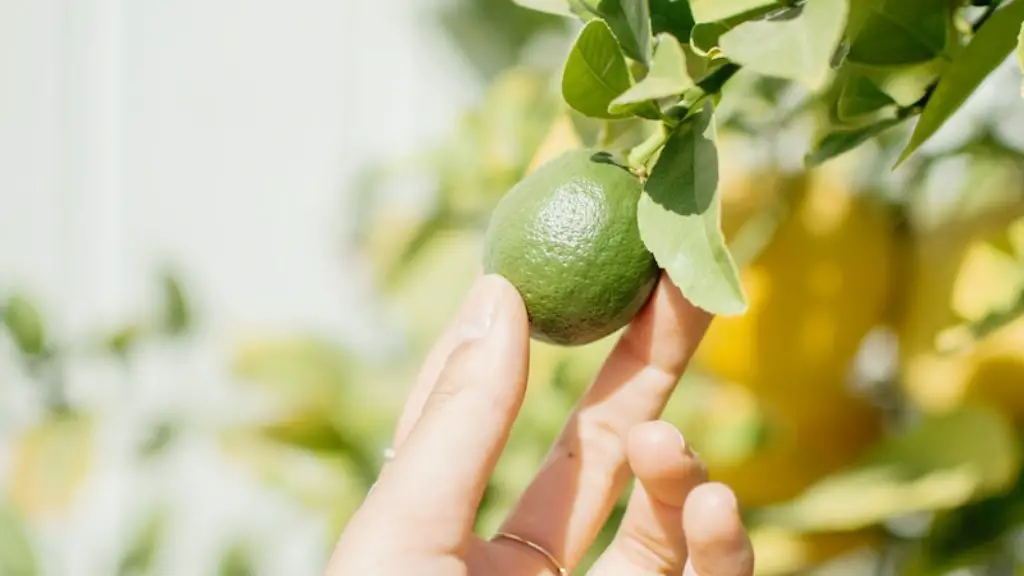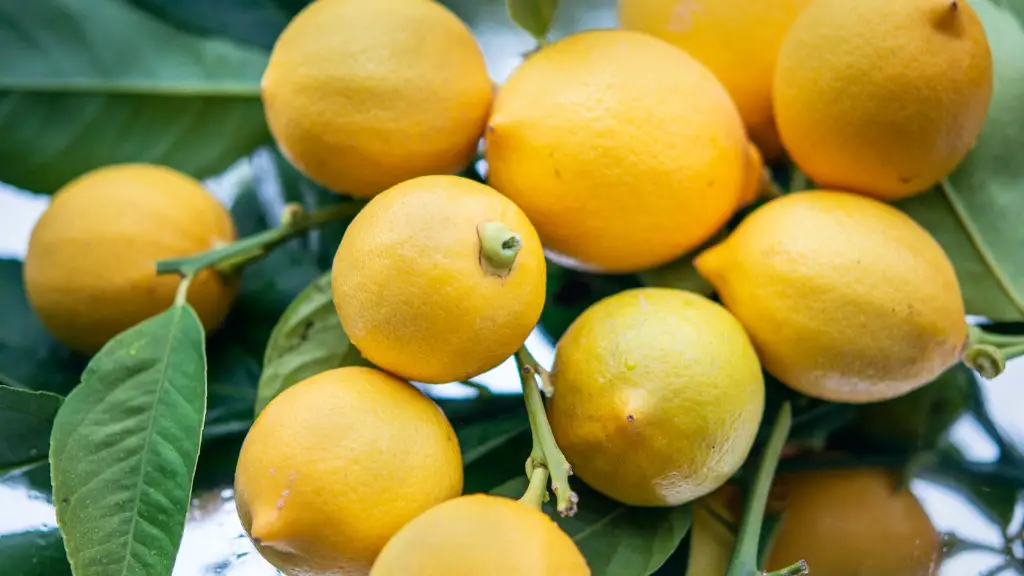If you’re reading this article, chances are you have a lemon tree that isn’t bearing fruit. Don’t worry, you’re not alone. Many lemon tree owners go through the same thing. The good news is, there are a few things you can do to try to encourage your lemon tree to bear fruit.
There are a few potential reasons why your lemon tree is not bearing fruit. It could be that the tree is not yet mature enough to produce fruit, or it might not be receiving enough sunlight or water. Another possibility is that the tree is not being adequately fertilized. If you have followed all the recommended care instructions and your lemon tree is still not bearing fruit, you may need to consult with a professional gardener or horticulturist to determine the cause of the problem.
Why is my lemon tree plant not producing fruit?
There are a few reasons why a lemon tree might not bear fruit. This includes poor watering practices, incorrect temperature, insufficient light, lack of nutrients in the soil, disease or pest infestation, and/or a bad rootstock. Lemon trees thrive the best in USDA zones 9-11.
Lemon trees are not tolerant to cold weather and prolonged exposure to extreme temperatures can cause the blossoms to fall off without bearing fruit. If you live in an area with cold winters, it’s important to protect your lemon tree from the cold by covering it with a tarp or placing it in a greenhouse.
Do you need 2 lemon trees to produce fruit
Lemon trees are self-pollinating, which means they don’t need pollen from another lemon tree in order to bear fruit. However, they will benefit from being pollinated by another type of citrus tree, such as an orange or grapefruit tree. You can also help your lemon tree to pollinate by gently shaking the branches when the flowers are in bloom.
Pruning is also important for indoor lemon trees. Pruning helps to encourage new growth and can also help to keep the tree from getting too big for its pot. When pruning, be sure to remove any dead or dying branches, as well as any branches that are crossing or rubbing against each other.
Potted lemon trees should be kept in cooler temperatures, around 60 degrees Fahrenheit, for at least a few hours every day in the winter and early spring. This is because lemon trees are subtropical plants, and they will not bloom if they are in constantly warm climates. Cooler temperatures encourage the plant to bloom.
How do you induce fruit on a lemon tree?
In the spring, fertilize the Lemon tree with a proper diet, including adding phosphorus to encourage flowering and fruiting, and prune only where necessary.
Lemon trees are very sensitive to over-fertilization, so be sure to follow the directions on the fertilizer package carefully. Add phosphorus to encourage flowering and fruiting, and prune only where necessary.
Lemons are a fruit that is available all year round. This is because lemon trees can begin to produce fruit anywhere from 4 months to one year after flowers bloom. This means that your lemon tree could be fruiting in any season. Typically, lemon trees will fruit in the winter.
Do lemon trees with thorns produce fruit?
Lemon trees are a great option for those looking for a plant with both thorns and tasty foliage and/or fruits. While the thorns may deter some, they also add to the overall aesthetic of the tree and can help protect the lemon tree from predators.
A healthy lemon tree will usually live for around 20 years and will bear fruit for most of that time. The tree will generally start to bear fruit in its third or fourth year, and will continue to produce fruit until it dies.
Can you self pollinate lemons
Citrus plants are generally self-fruitful and do not require another plant for pollination. However, many varieties do require a period of cool weather or drought to stimulate bloom and fruiting. However, extremes of either condition can damage the plants.
Coffee grounds are a great source of nutrients for lemon trees. The nitrogen and calcium in the coffee grounds helps to improve the health of the tree. The organic material also helps to improve the soil tilth. Only use the coffee grounds after they have been fully decomposed in the compost pile.
Do lemon tree flowers turn into fruit?
Meyer lemons are a type of citrus tree that blooms turn into fruit. If you don’t have blooms, you won’t get any lemons. To get blooms, you need to make sure your tree is comfortable. Under the proper care conditions, your citrus tree will have plenty of blossoms.
Adding coffee grounds to the soil around an orange tree can improve the soil structure and increase the availability of certain nutrients. The coffee grounds add phosphorus, magnesium, nitrogen, copper and potassium to the soil, which can help the tree to grow more vigorously. However, it is important to note that too much coffee ground can make the soil too acidic for the tree, so it is important to use them sparingly.
Can you put Miracle Grow on a lemon tree
This is a general purpose pesticide that can be used on fruit, citrus, and palm trees. It is effective against a wide range of pests, including caterpillars, beetles, and aphids.
The flowering process in citrus is primarily induced by cold temperatures or by drought stress, depending on the climate where it is being grown. Floral development is directly related to the length and intensity of cold temperatures and drought. In regions with moderate climates, such as the Mediterranean, citrus flowers are induced by a few days of cold temperatures below 10°C. On the other hand, in regions with cooler climates, such as in the United States, citrus flowers are more often induced by drought stress.
Can you give Miracle Grow to lemon trees?
Per the Miracle-Gro Water Soluble All Purpose Plant Food label, it can be used on all trees and shrubs. This means that you can use it on any tree or shrub that you have in your yard. This is a great product to use if you want to ensure that your plants are getting the nutrients they need.
There are seven major problems that can affect lemon trees: Citrus canker, sooty mold, botrytis blight, anthracnose, lemon scab, and two unknown brown diseases. These problems can cause leaf lesions, black or brown moldy spots, fuzzy gray mold, tan spots, and scabs. Here is a guide on how to identify and tackle each problem:
Citrus canker is a bacterial disease that affects the leaves and fruit of lemon trees. The symptoms are small, raised, yellow-orange lesions on the leaves. The lesions can also appear on the fruit, and the fruit may drop prematurely. To control citrus canker, prune away affected leaves and fruit, destroy infected material, and avoid wounding the tree.
Sooty mold is a fungus that grows on the honeydew secreted by aphids. The symptoms are black or brown moldy spots on the leaves. To control sooty mold, control the aphid population. This can be done by spraying the tree with insecticidal soap or horticultural oil.
Botrytis blight is a fungal disease that affects the leaves, stems, and fruit of lemon trees. The symptoms are fuzzy gray mold, brown spots
Should I trim lower branches on lemon tree
Citrus trees are known for their ability to fruit throughout the tree, even in shaded areas. This means that cutting back lemon trees to improve light availability is not necessary. However, young trees should still be pruned on occasion to remove any sprouts and weak limbs.
Lemons may develop thick, puffy skin when left on the tree for too long after they ripen. You can wait to pick until the lemons have turned fully yellow, but to ensure juiciness and thinner skins, pick them while there is a little green still on the fruit.
Conclusion
There could be a few reasons for why your lemon tree is not producing fruit. One possibility is that the tree is not getting enough sunlight. Lemon trees need at least 8 hours of sunlight a day in order to produce fruit. Another possibility is that the tree is not getting enough water. Lemon trees need to be watered regularly, especially during the hot summer months. If the tree is not getting enough water, the leaves will start to turn yellow and the tree will not produce fruit. Finally, it is also possible that the tree is not getting enough nutrients. Lemon trees need a well-balanced fertilizer that contains Nitrogen, Phosphorus, and Potassium. If the tree is not getting enough of these nutrients, it will not produce fruit.
The most likely reason that your lemon tree is not producing fruit is that it is not getting enough sunlight. Lemon trees need at least eight hours of sunlight each day in order to produce fruit. Another possibility is that the tree is not getting enough water. Lemon trees need to be watered regularly in order to produce fruit. If you are not sure whether or not your tree is getting enough sunlight or water, you can ask a local nursery or gardening store for advice.




